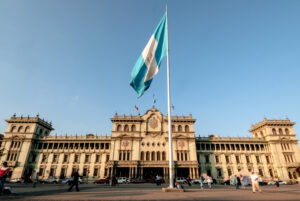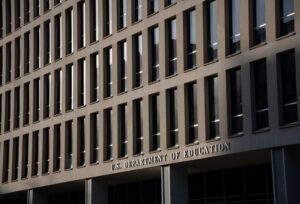The Bangladesh government has repeatedly denied involvement in hundreds of enforced disappearances of activists, critics, and opposition members, and has taken no steps to investigate them, Human Rights Watch, Robert F. Kennedy Human Rights, and the Asian Human Rights Commission said on August 30, the International Day of the Victims of Enforced Disappearances. Concerned foreign governments should impose targeted sanctions against top security force commanders implicated in enforced disappearances and other grave abuses.
An August 2021 report by Human Rights Watch documented widespread enforced disappearances by Bangladesh security forces under Prime Minister Sheikh Hasina’s Awami League-led government from 2009 to 2020. Foreign Minister AK Abdul Momen rejected the findings, telling the media that the allegations were “fabricated.” The Bangladesh government has long denied compelling evidence of government involvement in disappearances, which is particularly damaging and painful to victims’ families.
“The Bangladesh government has demonstrated absolutely no interest in investigating the role of its security forces in hundreds of enforced disappearances,” said Brad Adams, Asia director at Human Rights Watch. “Governments should act to ensure that the Bangladesh security force officials responsible face sanctions on their international travel, overseas assets, and use of international financial services.”
Enforced disappearances are defined under international law as the arrest or detention of a person by state officials or their agents followed by a refusal to acknowledge the deprivation of liberty, or to reveal the person’s fate or whereabouts. Enforced disappearances violate a range of fundamental human rights, including prohibitions against arbitrary detention, torture, and extrajudicial execution.
More enforced disappearances in Bangladesh have been linked to the notoriously abusive Rapid Action Battalion (RAB) than to any other security force unit in the country, according to Bangladeshi human rights organizations. Human Rights Watch has described RAB as a “death squad” and repeatedly called for it to be disbanded.
The government leadership’s denials have trickled down through the ranks, the groups said. Many families whose loved ones were forcibly disappeared said that when they tried to register a police report, the police refused to accept any complaint that included allegations against law enforcement, and that some families faced threats and harassment.
The family of Mohammad Rezoun Hossain, an activist with Chhatra Shibir, the student wing of the Jamaat-e-Islami Islamist political party, said that after police detained Hossain on August 4, 2016, and then denied holding him, they tried to file a complaint at the local police station. However, the officer in charge told them, “Do not search for Rezoun or we will slaughter you all.” Hossain remains forcibly disappeared. “If my son is guilty, then the police can produce him in court,” said his mother, Selina Begum. “Why did the police pick him up and disappear him?”
The United States, United Kingdom, European Union, Canada, Australia, and other countries have laws authorizing governments to impose sanctions on human rights abusers and prohibit visas or entry, seize assets, and block access to banking and other financial services.
On August 24, the Guernica 37 Chambers law offices made a formal submission to the UK Foreign, Commonwealth and Development Office recommending sanctions for 15 current and former senior officers within the Rapid Action Battalion for alleged involvement in human rights abuses and corrupt practices under the Global Human Rights Sanctions Regulations 2020.
In October 2020, US senators published a bipartisan letter calling for individual sanctions against top RAB officials for extrajudicial executions, enforced disappearances, and torture under the Global Magnitsky Human Rights Accountability Act and section 7031(c) of the Further Consolidated Appropriations Act, 2020.
Imposing sanctions on high-level officials implicated in enforced disappearances could prompt the resolution of cases, spur accountability, and deter future abuses, the groups said.
Bangladesh is the top contributor of peacekeeping troops in the world. UN Secretary-General António Guterres should ban Rapid Action Battalion officers from participating in UN peacekeeping missions, the groups said. The US Department of State’s Bureau of Political-Military Affairs should ensure that any support under the Global Peace Operations Initiative is not used to train members of RAB for deployment in UN peacekeeping operations.
“Bangladesh security forces implicated in grave violations should not be deployed to United Nations peacekeeping missions abroad,” said Angelita Baeyens, vice president of international advocacy and litigation at RFK Human Rights. “Secretary-General Guterres should ramp up screening of those deployed by the UN to ensure its human rights screening policy is being effectively applied for those put forward by Bangladesh.”
On August 31, Human Rights Watch will brief the US congressional Tom Lantos Human Rights Commission on measures that the US government should take to press Bangladesh to end enforced disappearances and other grave abuses by its security forces. Panelists will include Shahidul Alam, a prominent Bangladeshi activist and photojournalist; Sanjida Islam, the sister of disappeared opposition activist Sajedul Islam Sumon; and representatives from Robert F. Kennedy Human Rights and the Asian Human Rights Commission.
“Many families of victims of enforced disappearances in Bangladesh feel helpless in the face Bangladesh authorities’ repeated denials, and the world should act and use the tools at their disposal to spur accountability and stop these abuses from continuing,” said Mohammad Ashrafuzzaman, liaison officer at the Asian Human Rights Commission. “The UN should apply increased scrutiny to its relationship with Bangladesh security forces, and should not allow leaders implicated in grave violations the honor of serving under the UN flag.”



